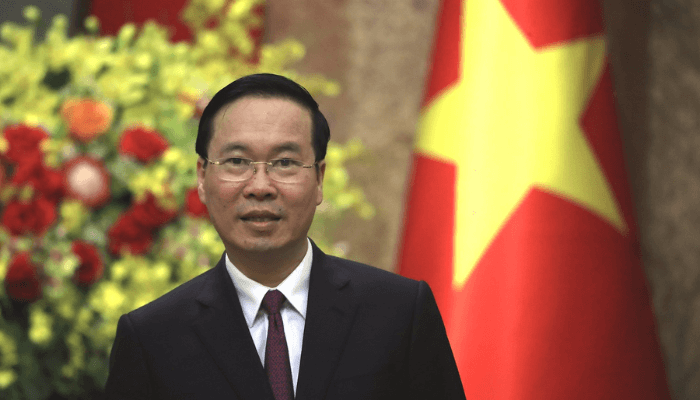- by Admin
- January 12, 2024
Click the link below to join Our WhatsApp group for daily brief on current trends in the country.
Join Here!
Loading

Vietnam’s president Vo Van Thuong has resigned after only one year in office.
After a meeting of the ruling Communist Party on Wednesday, the government said he had broken party rules and negatively affected its reputation.
In a country known for its political stability, rigidly enforced by the party, a president has just been forced to resign for the second time in just over a year.
Vo Van Thuong, at 53 years old, was the youngest ever to hold the position.
With his resignation, confirmed on Thursday by the National Assembly, he is also the shortest-serving. His predecessor Nguyen Xuan Phuc resigned last year, after only two years in the job. Both men were tainted by association with corruption scandals.
The explanation given by the government does not reveal much about the reasons. It states only that President Thuong “violated party rules, and that he had shortcomings which affected public opinion and the reputation of the party, state and himself”.
However, he is assumed to have resigned over fraud and bribery allegations being made against officials and a property business in the province of Quang Ngai, where he was once the local party boss. The case dates back more than a decade, but is being pursued now by the police, raising suspicions that there may be political motives behind the investigation.
Vietnam has an unusual collective leadership structure, with authority at the top shared between four positions, president, prime minister, communist party secretary-general and chair of the national assembly.
The party secretary-general is the most powerful, but the position of president, while largely ceremonial, is considered a natural stepping-stone to becoming party boss. Vo Van Thuong is a protégé of the current party boss Nguyen Phu Trong, who has been in the job for 13 years, an unusually long tenure, but at nearly 80 years old and in poor health, is expected to step down at the next party congress in 2026.
“The key here is the timing of dredging up a scandal that took place 12 years ago” says Carl Thayer, Emeritus Professor of Politics at the University of New South Wales.
“This has the fingerprints of the Ministry of Public Security and [its minister] To Lam. There were social media reports that when Nguyen Xuan Phuc was forced to resign as state president, To Lam stood against Thuong and lost the vote. Trong’s hand is now weakened with the demise of Thuong. If Trong wants to preserve his legacy of anti-corruption and party-building he will have to horse trade with the various factions.”
Source BBC News


Click the link below to join Our WhatsApp group for daily brief on current trends in the country.
Join Here!
0 Comments: